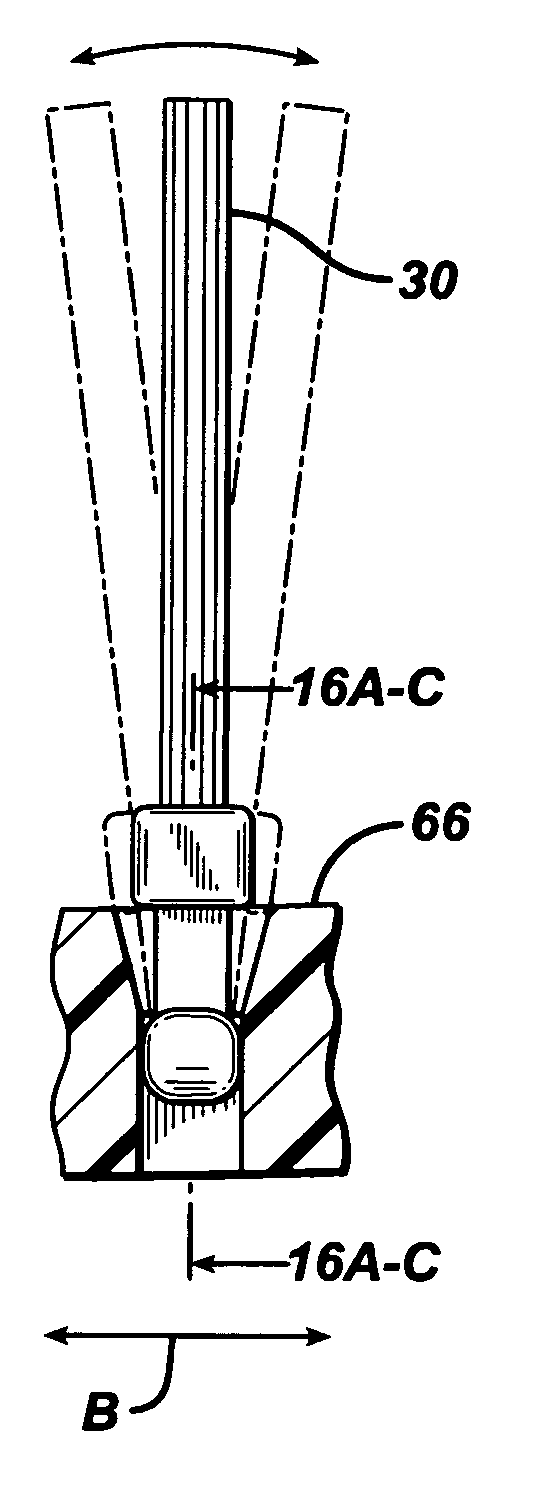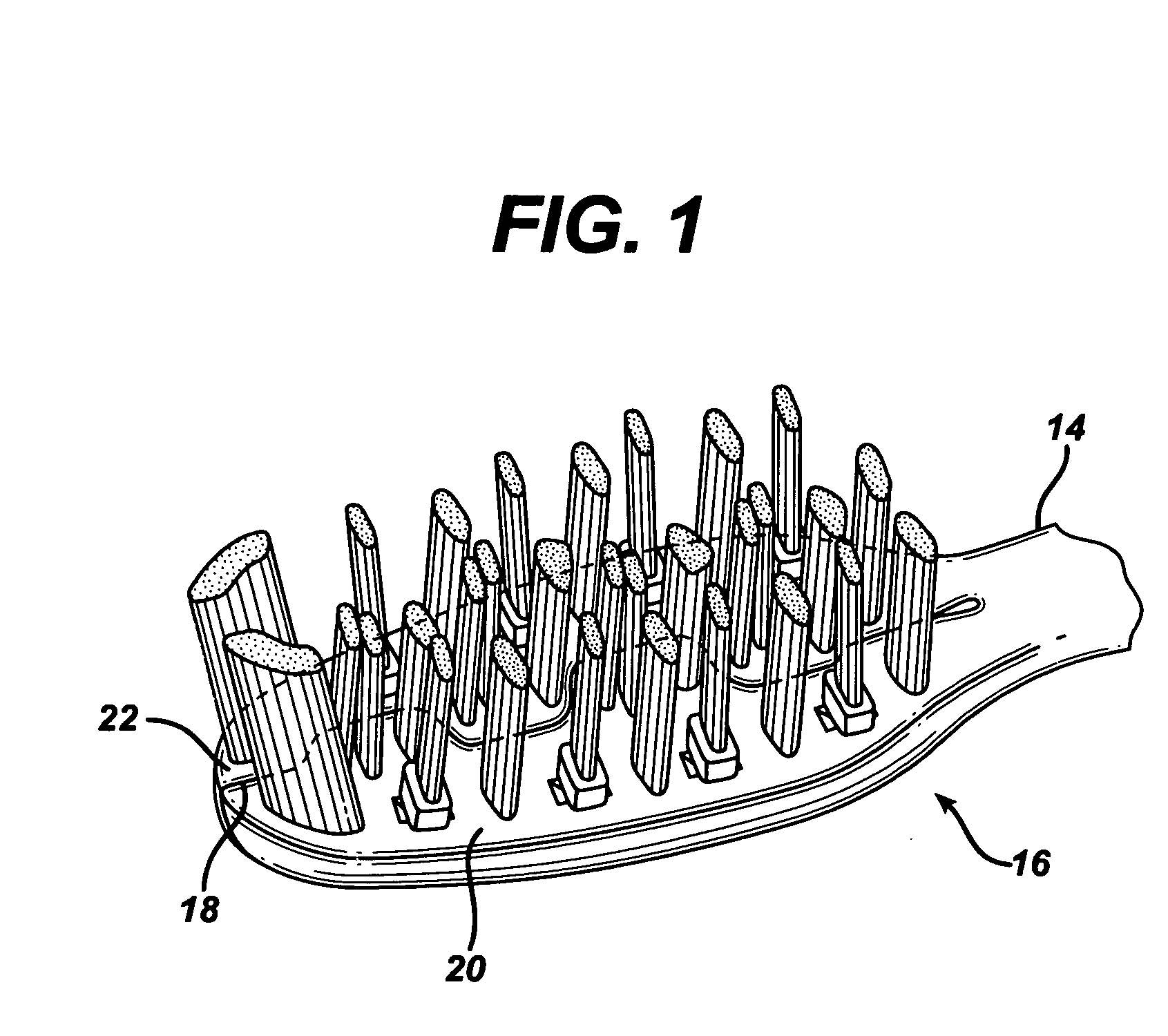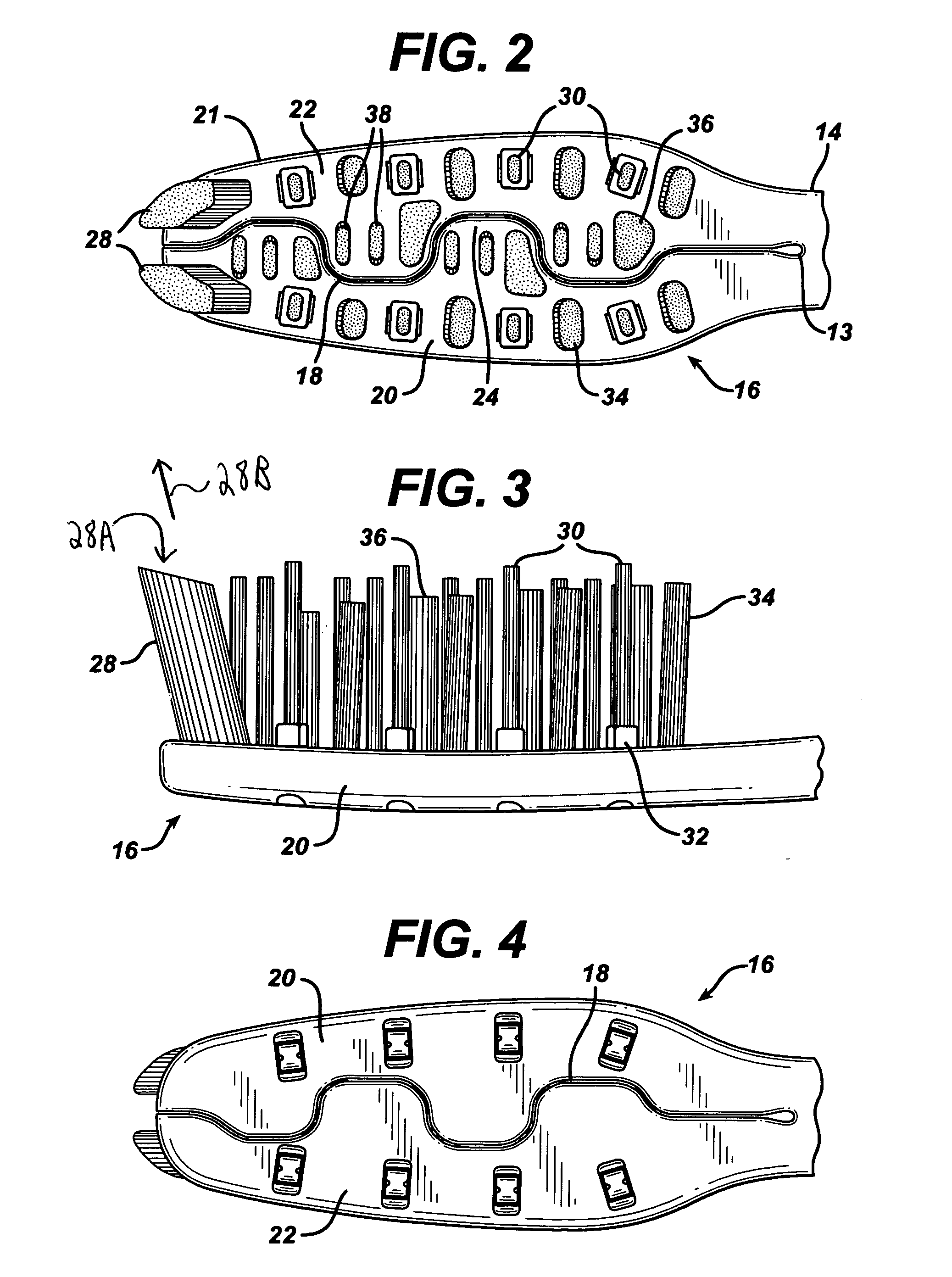Toothbrush
a toothbrush and tooth brush technology, applied in the field of oral care, can solve the problems of unbalanced mass, individual tufts of bristles cannot rotate independently of their “partner” tufts, and individual tufts are prevented from achieving optimal penetration between two teeth
- Summary
- Abstract
- Description
- Claims
- Application Information
AI Technical Summary
Problems solved by technology
Method used
Image
Examples
Embodiment Construction
[0032] Beginning with FIGS. 1-5, there is shown a toothbrush head 16 which extends from a neck 14 which extends from a handle (not shown) to form a toothbrush. The type of handle is not germane to the present invention. The head and handle are preferably made of polypropylene. The head has a serpentine split 18 which divides the head into two portions 20 and 22. An end of the split 13 near neck 14 is preferably circular in shape (see FIG. 2). As shown in FIG. 5, the split in the head allows portions 20 and 22 to flex or move independent of each other during use of the toothbrush, thus facilitating cleaning of the teeth.
[0033] Split 18 can also be defined as an opening in the head between head portions 20 and 22. This opening allows water to flow through the head, thereby enhancing cleaning of the top head surface which typically gets caked with toothpaste in spite of efforts to rinse the head clean.
[0034] Head portion 20 includes a projecting part 24 which fits (at least partially...
PUM
| Property | Measurement | Unit |
|---|---|---|
| range of rotation | aaaaa | aaaaa |
| angle | aaaaa | aaaaa |
| diameter | aaaaa | aaaaa |
Abstract
Description
Claims
Application Information
 Login to View More
Login to View More - R&D
- Intellectual Property
- Life Sciences
- Materials
- Tech Scout
- Unparalleled Data Quality
- Higher Quality Content
- 60% Fewer Hallucinations
Browse by: Latest US Patents, China's latest patents, Technical Efficacy Thesaurus, Application Domain, Technology Topic, Popular Technical Reports.
© 2025 PatSnap. All rights reserved.Legal|Privacy policy|Modern Slavery Act Transparency Statement|Sitemap|About US| Contact US: help@patsnap.com



